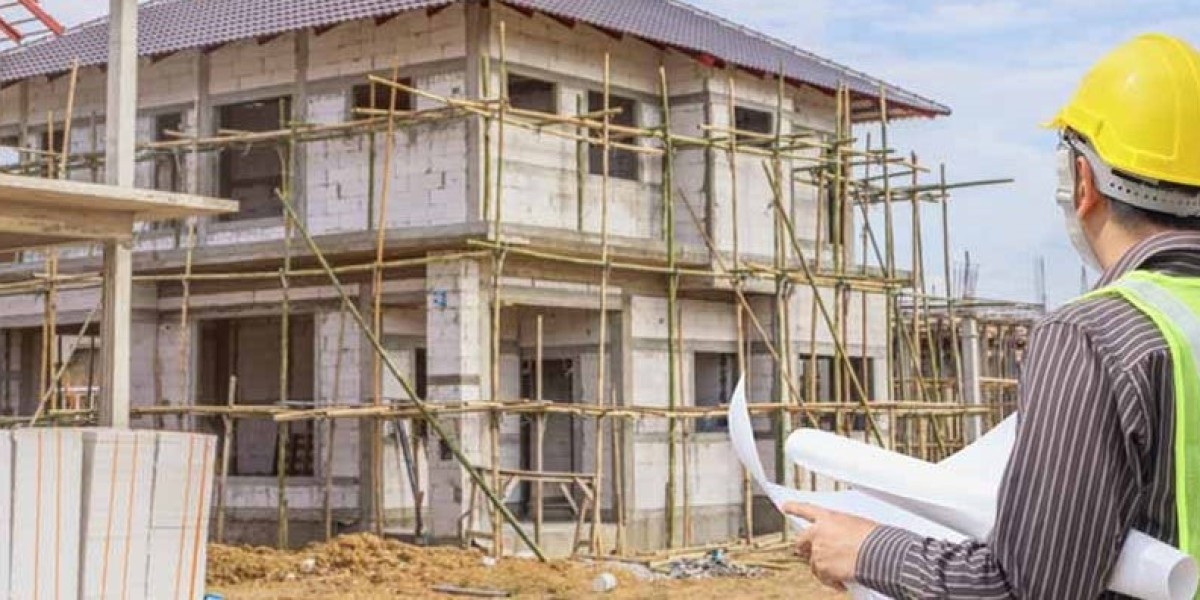It is important to become a residential builder or manager if you want to construct homes. Residential contractors supervise home construction. These contractors are responsible for ensuring that all houses built in the right way, at the right time, with high-quality materials, are safe. This is the perfect career for people who love working with planning, construction, and other people.
Contractors in residential construction have numerous responsibilities. Hire workers, plan and buy projects, set up schedules, etc. Contractors also follow laws and building codes. Residential contractors must have knowledge, expertise, and appropriate licenses. This guide explains everything required to launch a successful career in residential construction.
What Do Residential Contractors Do?
A residential contractor supervises construction projects from the beginning until completion. Their responsibilities are to supervise, plan, and budget. Meeting clients is the first part of their work. This helps them understand the kind of home that a client desires. Contractors will prepare a detailed plan and estimate costs.
The contractors will coordinate their work during the construction phase with all other tradespeople, such as electricians, plumbers, etc. It is their responsibility to ensure all work done by contractors and other workers is carried out safely. Additionally, they ensure the quality of all materials. The contractors will solve problems quickly if they occur on-site.
The residential contractor also handles the paperwork. They ensure all building permits have been approved. They adhere to local building codes. This is a very important part of their job, as houses that are not built according to the local building code can cause danger or be removed from the market by authorities.
Learn How To Become A Contractor For Residential Projects
Becoming a contractor for residential construction is not something you can do overnight. To become a residential contractor, you need experience, knowledge, and planning. You can start by following these steps.
Get Education and Knowledge
Education is vital. Some contractors study construction or related subjects in college. Many contractors are trained through hands-on training or apprenticeships. Understanding building methods, safety measures, and construction equipment is crucial.
Gaining Work Experience
Working experience can be very useful. You can start by working as a builder's assistant. Learning from experienced builders or contractors. Take note of how the experienced contractor or builder plans projects, handles workers, and solves problems. Experience can help develop skills that cannot be taught in a book.
Learn About Construction Tools and Technology
Residential contractors use tools and technology to plan and manage projects. Software for project management, budgeting, and scheduling is important. Some contractors also use services that help measure and estimate construction materials. For example, using the best takeoff services helps contractors calculate materials accurately. This ensures that projects do not waste money or time. Takeoff services show how much wood, concrete, and other materials are needed before construction begins.
Know the laws and codes that govern construction
All cities and states have building codes. There are certain rules for ensuring the safety of homes. Contractors need to be aware of and adhere to the laws. They are educated on safety for both workers and machines. To prevent legal problems, you must adhere to the codes and laws.
The Licenses That You Need
As a residential builder, you must have a valid license. It depends on which state or country you are in. Contractors usually have to pass an exam proving their legal and construction knowledge. Certain states will also demand proof of prior experience. A license is proof to the client that a contractor is reliable and professional.
Network Build-up
The importance of networking in construction cannot be overstated. Contractors must have workers, suppliers, and clients. To build a good network, join associations for construction, attend tradeshows, and connect with other professionals. With a strong network, it is much easier to secure jobs and locate reliable workers.
Start Small Projects
Most new contractors begin by taking on small jobs. Starting with small projects, like building a tiny house or renovating an existing home, is always a great idea. You can learn to manage money, tim,e and people by starting small. Contractors gain experience through small-scale projects that prepare them for the larger jobs of tomorrow.
Contractors Require Specific Skills.
Success as a residential contractor requires many skills. Here are the five most crucial skills.
Contractors have to be able to manage large teams. You must have the ability to solve problems and give instructions clearly.
Working with people, including clients, workers, and suppliers, is a daily task. Good communication helps prevent mistakes.
Planning and Organisation: It is important to manage budgets, timelines, and resources. Being organized will keep your project on course.
Problem Solving: Construction projects frequently face unexpected challenges. Contractors are required to provide quick and efficient solutions.
Math: Calculating costs and materials is required to estimate areas.
It is important to pay attention to the details. Contractors are required to pay close attention to detail.
Tools and Technology for Residential Contractors
The modern contractor uses many technologies and tools. These tools help to speed up the process.
Building Management Software: It helps to plan and monitor schedules.
Estimating Tools - Calculates materials and labour costs.
Safety Equipment: Worker safety is ensured by wearing protective gear, such as helmets, gloves, and protective apparel.
For accurate measurements, measuring tools include levels, tape measures, and lasers.
Takeoff Service: A tool or service that helps calculate how much material is needed for an undertaking. Takeoff services are the most accurate way to plan, cut down on waste, and help you save money. This service allows contractors to estimate the required amount of concrete, wood, and steel. Projects are more effective and professional.
The Best Tips for Residential Contractor Success
You can't expect to achieve success overnight. Contractors require dedication and planning. You can learn some useful tips by reading on.
Follow the building code and safety guidelines.
Stay up-to-date with the latest construction technologies.
Hire a skilled and dependable team.
Communicate clearly with customers and employees.
Schedules and budgets must be planned carefully.
Always inspect the materials you use and your work.
Respect your professional reputation.
Challenges Residential Contractors Face
Contractors face many challenges. Contractors must face many challenges.
Conditions such as weather delay construction.
The workers could leave or not be present.
Clients are allowed to change plans at any time during construction.
Material costs can unexpectedly rise.
Unfortunate mistakes or accidents could cause additional delays and costs.
It's important to deal with challenges in a calm and professional manner. Expert contractors know how to deal with problems.
Developing Your Career and Career Opportunities
Many ways are available for residential contractors to grow. Experienced contractors will be able to manage large projects such as commercial and apartment constructions. Some people may want to create their own construction business. Others specialize in custom home construction, eco-friendly construction, or renovations of homes or other areas.
A residential contractor who is dedicated, well-informed, and has a plan can lead a successful and satisfying career.
Conclusion
Being a residential contractor requires patience, knowledge, and experience. Managing workers, executing plans, following law and utilizing tools and technology are all part of the job. It is important for contractors to learn leadership, communication skills, organizational abilities, problem solving, and how to solve problems. Most importantly, using modern tools to improve accuracy and efficiency such as Best Takeoff Services can help.
Residential contracting allows people to create beautiful, secure, and comfortable homes. A residential contractor can be achieved by anyone who has a strong interest in the construction industry.
FAQ
How Long Will It Take Me To Qualify As A Residential Contractor?
It typically takes several years for education and experience to lead up to obtaining a licence.
Do Residential Contractors Require A Licence?
The majority of states will require contractors to be licensed to do legal work.
What Are The Steps To Becoming A Residential Contractor?
First and foremost, it is important to acquire knowledge about the industry.








